Table of Contents
Forskolin (Coleus forskohlii) is the only known supplement to naturally boost cAMP (Cyclic Adenosine Monophosphate) in your brain. cAMP is important for neural signaling within brain cells.
As a secondary messenger in neurons, cAMP produces proteins needed for neuron and synapse growth. This process is called Long-Term Potentiation (LTP).
LTP is the process where synaptic connections get stronger in response to electrical stimulation in the brain. This process happens naturally through life experience. It’s a critical part of synaptic plasticity. And how experience is recorded through learning and memory.
Forskolin is a chemical compound extracted from Coleus forskohlii (Plectranthus barbatus), a perennial plant native to India, Burma and Thailand.
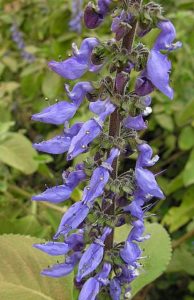
Forskolin is used in Western homeopathic medicine to treat allergies, skin conditions, obesity, PMS, irritable bower syndrome, urinary tract infections, bladder infections, cancer, blood clots, male infertility, insomnia and convulsions.
Some healthcare providers even use Forskolin intravenously (IV) for heart failure.
Here we’re going to explore how Forskolin benefits your brain.
Forskolin helps:
- Neural signaling: Forskolin activates the enzyme adenylate cyclase which increases cAMP (Cyclic Adenosine Monophosphate) levels in brain cells. cAMP is a signal carrier required for intracellular communication. Increasing cAMP levels helps boost cognition, long-term memory, and alertness.
- Cerebral Circulation: Forskolin works as a vasodilator which increases blood flow in your brain. Improved blood flow increases nutrient and oxygen delivery to brain cells.
- Brain-Derived Neurotrophic Factor (BDNF): Forskolin stimulates the TRKb receptor which helps potentiate BDNF. Both cAMP and BDNF can activate mitogen-activated protein kinase (MAPK/ERK) which plays a role in long-term potentiation (LTP).[ii] LTP helps create long-term memory.
What is Forskolin?
Forskolin is a chemical compound found in the Coleus forskohlii plant, a member of the mint family which grows as a perennial on the plains of India and lower Himalayas.
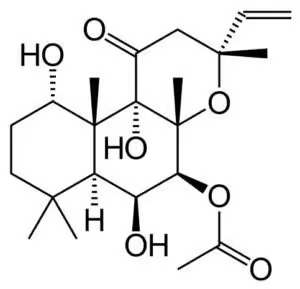
Coleus forskohlii was used in traditional Ayurvedic medicine to improve mood and for general health and wellness. As folk medicine, the herb was used to treat central nervous system disorders, problems of the heart, lung function, skin and gastrointestinal issues.
Researchers and holistic medical practitioners use the extract Forskolin to boost cerebral blood flow, lower blood pressure, treat hypertension, asthma and congestive heart failure.
As a nootropic, Forskolin is the only known supplement to naturally raise cAMP levels. Forskolin activates the enzyme adenylate cyclase which increases intracellular levels of cAMP (Cyclic Adenosine Monophosphate).[iii]
cAMP was discovered in 1956 and its production is now known to be the final common pathway for many hormones and transmitter agents.
To put this in practical perspective, hormones and neurotransmitters do not enter the cell. Instead, they activate a receptor on the cell membrane that is part of the adenylate cyclase enzyme complex.
The production of cAMP in a cell is catalyzed by this complex. The cyclic AMP (cAMP) then activates cAMP dependent protein kinase (PKA), which results in changes in the cell’s function.[iv] Based on input from the relevant hormone or neurotransmitter.
The elevation of cAMP along with PKA is required for long-term potentiation (LTP). This increase in neuroplasticity is how long-term memories are formed and encoded in your brain.
Researchers have found that increases in cAMP rapidly activates the Brain-Derived Neurotrophic Factor (BDNF) receptor TrkB and induces BDNF-dependent long-term potentiation at the Schaffer collateral-CA1 synapse in the hippocampus.[v]
In simpler terms, Forskolin boosts cAMP levels which affects long-term potentiation (LTP). LTP is an integral part of the process in developing and encoding long-term memories.
How does Forskolin work in your Brain?
Forskolin boosts brain health and function in several ways. But two in particular stand out.
- Forskolin enhances memory. Forskolin as a nootropic has the unique ability to activate the enzyme adenylate cyclase (AC). The activated AC enzyme then converts to cAMP (Cyclic Adenosine Monophosphate), a secondary messenger used for intracellular communication.[vi]
cAMP helps stimulate the production of CREB (cAMP response element-binding protein). An increase in CREB enhances Long-Term Potentiation (LTP).
LTP is the connection between brain synapses. Strengthening in response to stimulation by neurons on either side. A major component in both learning and memory.
Memories are stored at a cellular level. And retrieved at a cellular level. This well-travelled pathway is strengthened by boosting cAMP with Forskolin.[vii]
- Forskolin increases cerebral circulation. Coleus forskohlii has traditionally been used to treat hypertension (high blood pressure), congestive heart failure and angina (reduced blood flow to the heart).
Forskolin is very effective in lowering blood pressure. And scientists believe this ability to boost blood flow is related to Forskolin’s cAMP-elevating ability.
Researchers recruited 7 patients with dilated cardiomyopathy (DCM). DCM is a condition in which the heart’s ability to pump blood is decreased due to the left heart ventricle being enlarged and weakened. Forskolin administration dramatically improved left ventricle function. And increased overall cardiovascular performance.[viii]
Another group of scientists set out to study the effects of Forskolin on cerebral circulation. In this study, rabbits were anesthetized and measuring devices were attached to blood vessels entering and coming out of the brain.
The study found that Forskolin was an effective cerebral vasodilator. Enlarging blood vessels in the brain boosted blood flow. Allowing for more efficient delivery of nutrients and oxygen to brain cells.[ix]
How things go bad
Environmental factors like the food we eat, exposure to toxins, polluted air, ADHD, illness, stress and aging changes our brain chemistry.
↓ Mood and motivation declines
↓ Memory and recall decline
↓ Long-term memory fades
All of these changes are contributing factors to poor quality of life. And as they progress, to neurodegenerative diseases like Alzheimer’s, dementia and Parkinson’s.
Forskolin benefits
Research from hundreds of studies, and feedback from neurohackers have shown that Forskolin can:
- Improve memory by boosting cAMP activity in the brain
- Boost catecholamines (dopamine, norepinephrine, and epinephrine) in the brain
- Boost cerebral circulation
Forskolin is fat-soluble and quickly enters your brain after you take it. Once in your brain, it boosts cAMP activity. cAMP is involved in the Long-Term Potentiation process of preserving memories.
Forskolin combined with Artichoke extract is even more effective. Forskolin effectively boosts cAMP levels but also increases PDE4 in the brain. PDE4 is a cAMP inhibitor and will counteract increases by Forskolin if left unchecked.
Inhibiting PDE4 with Artichoke Extract, and boosting cAMP with Forskolin also potentiates dopamine release in the brain. Boosting processes in this stream of chemical reactions in the brain increases learning and memory.[x] Without the side effects of stimulating dopamine production through the use of drugs like Adderall or Ritalin.
How does Forskolin feel?
Many neurohackers report that Forskolin with Artichoke Extract improves mood. It motivates you to want to learn, and to get things done. Some say it works as good as Modafinil.
The general consensus is:
- Improved long-term memory
- Increased ability to retain information
- Increased ability to study
- Improved mood and motivation
Forskolin Clinical Research
Forskolin as a nootropic
cAMP responsive element binding protein (CREB) is a protein that modulates the transcription of genes. Increases in cAMP triggers the activation of CREB.
And this transcription factor is a big part of intracellular signaling. It regulates everything from the production of new sperm cells in men (spermatogenesis), to the circadian rhythms that control your sleep and awake cycles, to memory formation.
Forskolin increases cAMP which triggers the activation of CREB. Researchers have found through animal studies that CREB is required for a variety of complex forms of memory, including spatial memory and social learning.[xi]
Forskolin reduces anxiety
Benzodiazepines (Benzos) like Valium are a class of psychoactive drug used to treat anxiety, insomnia, agitation, muscle spasms, alcohol withdrawal and before medical and dental procedures to keep the patient calm.
Benzodiazepines come with a whole host of negative side effects including addiction, cognitive impairment, decreasing effectiveness (tolerance) and nasty withdrawal symptoms.
Scientists have been studying non-GABAergic substances that elevate cAMP, and have anti-anxiety activity. So they took a look at Forskolin.
In one animal study, researchers compared the effects on anxiety of Forskolin compared to diazepam (Valium). And found that Forskolin produced significant anti-anxiety activity in both stressed and unstressed animals.
Diazepam had an anti-anxiety effect on the unstressed animals. But did not work for stressed animals. The researchers noted that the anti-anxiety activity of Forskolin was accompanied by a significant elevation of cAMP levels. There’s cAMP again…
The researchers concluded that Forskolin was a better option for treating anxiety. This non-receptor mediated anti-anxiety action through cAMP elevation was preferable to the adverse reactions people get from using receptor-mediated drugs like Benzos.[xii]
Forskolin as a neuroprotectant in chemical warfare
If you ever find yourself in a warzone, you may want to have a bottle of Forskolin with you.
Acetylcholinesterase (AChE) is the primary cholinesterase in your body. This enzyme catalyzes the breakdown of acetylcholine (ACh) once ACh is used in the synaptic cleft during neurotransmission. This is how it works…
During neurotransmission, ACh is released from the first neuron into the synaptic cleft of the 2nd neuron where it binds to ACh receptors. And does its job of passing on the neural signal.
Once ACh has done its job, AChE which is also located in that synaptic cleft, steps in and breaks down acetylcholine (ACh) by liberating the choline. The liberated choline is taken up again by another neuron, and ACh is synthesized by combining the free recycled choline with Acetyl-CoA through the action of choline acetyltransferase.
Chemical warfare agents like Sarin gas, and insecticides like malathion, act to inhibit AChE. Which means they shut down this recycling process needed for acetylcholine production in the brain.
Researchers have demonstrated that Forskolin is a very effective AChE promoter. Forskolin activates AChE and up-regulates its expression. Using mouse models, the scientists showed that Forskolin boosted AChE expression outside and inside the affected brain cells.
They concluded that Forskolin can sufficiently upregulate cellular AChE production and protect cells against chemical warfare agents like Sarin.[xiii]
Forskolin works to protect your brain from damage caused by insecticides too. So if your using an insecticide in the house or out in your garden, you may want to protect your brain by dosing with Forskolin first.
Forskolin Recommended Dosage
Recommended dosage for Forskolin is 250 mg of Coleus forskohlii at 10%, or 125 mg of Coleus forskohlii at 25%.
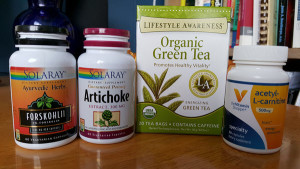
For boosting cAMP in a CILTEP stack: 4 mg Forskolin extract per day along with 900 mg of Artichoke Extract for PDE4 suppression.
NOTE: You will not get the full nootropic benefit of using Forskolin if you use it on its own. Forskolin has a tendency to boost cAMP and PDE4 levels. And PDE4 suppresses cAMP. Artichoke Extract helps control PDE4.
And don’t worry about measuring out an accurate 4 mg for this CILTEP stack. I’ve been using 250 mg of Forskolin (10% ForsLean®) with 900 mg of Artichoke Extract (6%) with great success.
For counteracting Forskolin’s effect on Acetylcholinesterase: 800 mg Acetyl-L-Carnitine (ALCAR) – (500 mg of ALCAR twice per day.
Many users of this stack report it helpful to supplement with 500 mg Phenylalanine, a B-Vitamin Complex and caffeine (coffee or preferably green tea).
Forskolin Side Effects
Forskolin induces CYP3A gene expression in your liver. Which means, like grapefruit juice, Forskolin needs to be used cautiously as it will amplify the effects of other nootropics in your stack. And prescription meds.[xiv]
Acetylcholinesterase is upregulated by cAMP which makes you sleepy. This means that available Acetylcholine (ACh) in your brain drops. You can counteract this by supplementing with Acetyl-l-Carnitine (ALCAR), which reduces the upregulation of Acetylcholinesterase.
The most common side effect with Forskolin is diarrhea because increased cAMP affects the smooth muscle in your gastrointestinal tract. Things move through your intestines faster with Forskolin. But this side effect usually happens at much higher than recommended doses of Forskolin.
Forskolin also reduces blood pressure. So if you’re on high blood pressure meds or have naturally low blood pressure you should avoid using Forskolin.
Type of Forskolin to Buy
Forskolin is usually marked as “Forskolin” or “Coleus forskohlii” on the bottle.
Forskolin typically comes in 125 mg capsules of Coleus Forskohlii (25% Forskolin), or 250 mg capsules of Coleus Forskohlii (10% Forskolin).
Look for a Coleus forskohlii or Forskolin supplement with the percentage of Forskolin extract clearly marked on the label.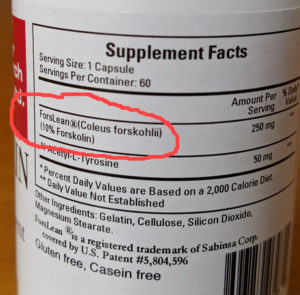
ForsLean® by Sabinsa Corporation is a branded and patented form of Coleus forskohlii that’s been used most often in human trials. So we prefer a supplement that uses ForsLean® as their source of Forskolin.
Researchers in India reported that Forskolin concentration can change significantly depending on where the Coleus forskohlii is grown.[xv] And why we prefer a standardized version like ForsLean®.
Nootropics Expert Recommendation
Forskolin Extract 125 – 250 mg per day
 I recommend using Forskolin as a nootropic supplement.
I recommend using Forskolin as a nootropic supplement.
Your body does not make Forskolin on its own. So to get its benefits you must take it as a standardized supplement.
Forskolin on its own as a supplement for cognition and memory is not very effective because it increases PDE4 (a cAMP reducer) along with boosting cAMP. So the nootropic effects cancel each other out.
But Forskolin is especially helpful when combined with Artichoke Extract. It helps boost memory, increases motivation and the desire to learn. And helps improve mood while controlling anxiety.
We suggest dosing Forskolin 125 – 250 mg per day with 900 mg of Artichoke Extract taken in the morning. Stack this with at least 800 mg of ALCAR to keep your acetylcholine levels up.
We’ve also found that combining this stack with caffeine is helpful. The L-Theanine in green tea comes with the caffeine boost we need. Without the side effects of coffee.
And finally, we are making the effects of normal dopamine function more effective with this stack. It triggers the desirable downstream processes that increase learning and memory.
The chemical dynamics of the dopamine are preserved. And we don’t get the negative side effects of using a stimulant like Adderall or Ritalin.
This Forskolin/Artichoke Extract stack increases mental endurance for encoding long-term memories.

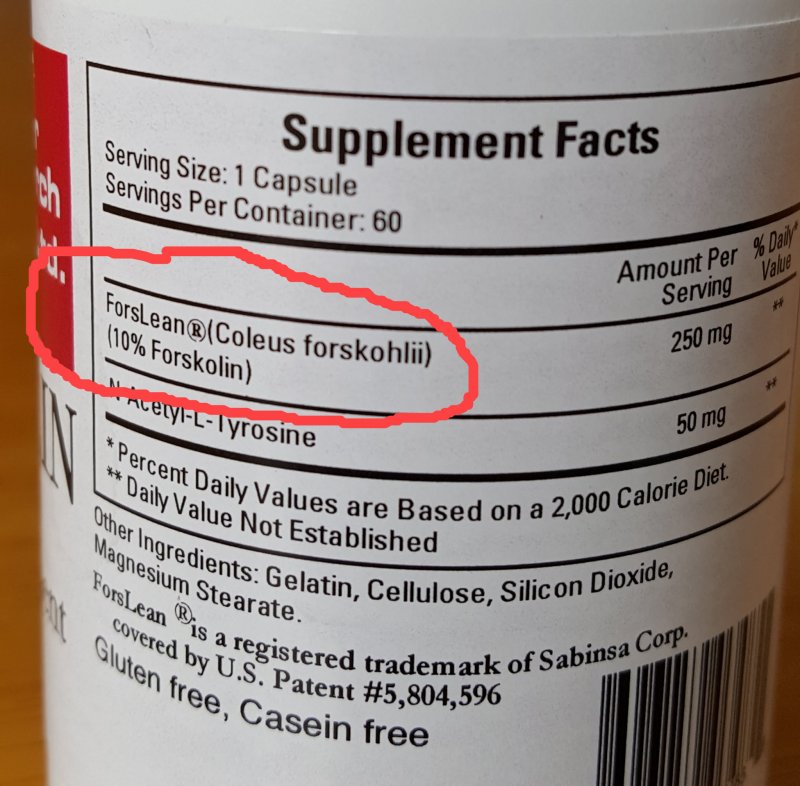
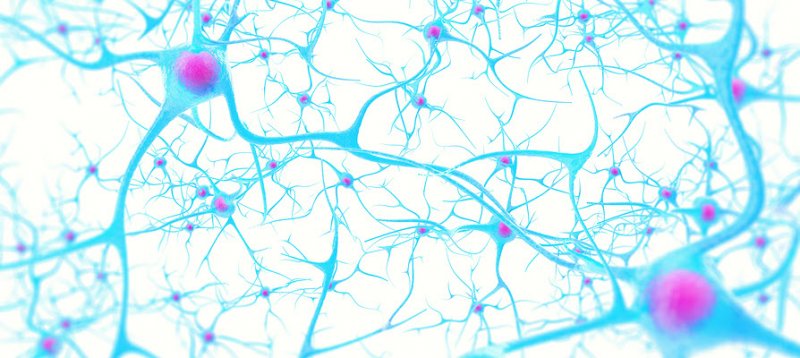





Join The Discussion - 112 comments
Doug
May 8, 2020
David, any opinion on this excerpt from the cAMP wikipedia page?
“Recent research suggests that cAMP affects the function of higher-order thinking in the prefrontal cortex through its regulation of ion channels called hyperpolarization-activated cyclic nucleotide-gated channels (HCN). When cAMP stimulates the HCN, the channels open, closing the brain cell to communication and thus interfering with the function of the prefrontal cortex.”
David Tomen
May 10, 2020
Doug, the research they’re referring to a study at Yale which I haven’t seen published in any peer-reviewed journal. And is contrary to tons of research. Some of which I’ve linked to in this review that shows raising cAMP in brain cells helps boost cognition, long-term memory, and alertness.
Forskolin in particular stimulates the TRKb receptor which helps potentiate BDNF. Both cAMP and BDNF can activate mitogen-activated protein kinase (MAPK/ERK) which plays a role in long-term potentiation (LTP). LTP is involved in the development of long-term memory.
Efraim
April 24, 2020
Hello David,
Is there interaction between taking diazepam and forskolin? Thanks in advance
David Tomen
April 25, 2020
Efraim, I checked with the drug interaction checker here: https://www.drugs.com/drug-interactions/diazepam-index.html. And did not find a conflict between Forskolin an diazepam.
But then I looked at the clinical study I’ve got under the sub-head “Forskolin reduces anxiety” under the heading “The Research” in my review above. And while the mechanism of action for each is different. Both were compare in reducing anxiety. That leaves me questioning whether there is an interaction between the two. And my answer is “I don’t know for certain”.
If you try them I highly suggest a low dose to start and be careful. There may be a risk.
24
April 26, 2020
I appreciate David, thank you so much!
Caio
January 19, 2020
Hello David!
Where I live the plant Coleus forskohlii is very common…
Woud you have any idea how many grams of leafs ingestion should be enough to get around 150mg of forskolin as you recommend?
Thank you!
David Tomen
January 21, 2020
Caio, unless you have a testing lab at home there is no way to tell. And to further complicate things, and as I mentioned under the section “Available Forms”, researchers in India reported that Forskolin concentration can change significantly depending on where the Coleus forskohlii is grown.
This is why we prefer extracts and supplements from trusted manufacturers who test each batch of their product.
Mike
December 23, 2019
no need to publish
Enzymatic Therapy Forskohlii 5X 50mg 18%
250mg of resveratrol
1,500mg of acetyl carnitine
(bit of coffee with saffron)
no drowsiness to detect for 2 hours (as opposed to unmanageable / immediate drowsiness with 2 capsules of ciltep)
enhancement of 3D vision, objects of interest vibrating in the middle of nowhere to make themselves more visible
no enhancement of social interraction to report
Mike
December 23, 2019
sorry, 3X 50mg
veins on hands become less visible, feel like veins on top of feet are LESS thicker
next time will take with a decent amount of fat
–
… stack of ALCAR work well with bitter melon and / or fucoidan (to lose weight)
Jodi
November 29, 2019
I have low cholinesterase and was wondering if taking forskolin would help to increase it?
David Tomen
December 1, 2019
Jodi, Forskolin is NOT an acetylcholinesterase agonist. But L-Tyrosine and Acetyl L-Carnitine do boost acetylcholinesterase according to these studies:
https://www.sciencedirect.com/science/article/pii/S0197018612003026
https://academic.oup.com/biomedgerontology/article/56/3/B140/545765
Martin Nordin
October 17, 2020
How does your reply cope with the rest of your comments
that Acetyl-L Carnitine are a potent cholinesteras-inhibitor?
https://academic.oup.com/biomedgerontology/article/56/3/B140/545765
I know….the studies are showing different results, and the only
thing you can do in this case is therefore to believe that the difference between L-Carnitine and Acetyl-L Carnitine is that only the first are boosting Cholinesteras
“Acetyl-carnitine is a substance natural to the body. … Thus, inside the cell, acetyl-carnitine and carnitine are essentially interchangeable. The major difference between acetyl-carnitine and carnitine is that acetyl-carnitine is more easily absorbed from the gut, and more readily crosses the blood-brain barrier.”
Or what do you think?
David Tomen
October 17, 2020
Martin, ALCAR is NOT an acetylcholinesterase inhibitor.
Acetyl-L-Carnitine is a precursor to acetylcholine in the presence of Coenzyme-A. ALCAR donates a “methyl group” to make acetylcholine. https://www.ncbi.nlm.nih.gov/pubmed/2215852
Braeden Plein
July 30, 2019
Wouldn’t it make sense that Huperzine-A (a direct AChE inhibitor) would be better than ALCAR for this sort of “ciltep” stack?
Would love to hear some thoughts on this!
David Tomen
July 31, 2019
Braeden, negative and it’s because you can’t use Huperzine-A every day for one thing. It’s got a 24 hour half life so needs to be cycled.
And the second thing is Hup-A is only an AChE inhibitor. But ALCAR is a natural cofactor in, and needed for the synthesis of acetylcholine.
Braeden Plein
August 1, 2019
The other thing that stands out as a potential replacement is using resveratrol instead of artichoke extract since it is also a PDE4 inhibitor. Would love to hear your thoughts on this!
David Tomen
August 2, 2019
Braeden, you are correct and Resveratrol is another option. Forskolin was made ‘famous’ because of the CILTEP stack.
Braeden
August 3, 2019
But is resveratrol at a normal dose (eg. 250mg) comparable to the effectiveness of artichoke extract at a normal dose (eg. 900mg)?
Curious how someone could compare the effectiveness of their PDE4 inhibition.
David Tomen
August 4, 2019
Braeden, good question and I doubt anyone knows the answer. I’ve never seen any research that could be used as a comparison.
Amy
July 5, 2019
David,
I’ve been taking nootropics for about 6 years. I’m looking to increase my energy and motivation. I’ve used the racetams, but would like to try something more natural. I take high blood pressure medication, so the Forskohlin is out for me. If I take the Artichoke Extract with ALCAR and a good choline source, will I still receive the motivation and energy?
Thank you for your time and for what you do in research of nootropics!
Amy
David Tomen
July 6, 2019
Amy, it may help. For more specific ideas on energy and motivation please study the following two posts:
https://nootropicsexpert.com/hacking-motivation-with-nootropics/
https://nootropicsexpert.com/best-energy-supplements-to-buy-in-2019/
André
June 29, 2019
Hello!
I would like more info/clarity in regards to the dosage.
Is it 125mg – 250mg of Coleus Forskohlii with 10% – 25% Forskolin concentration, or total pure Forskolin between 125mg – 250mg per day?
David Tomen
June 29, 2019
André, recommended dosage is 250 mg of Coleus forskohlii (Forskolin 10%), or 125 mg Coleus forskohlii (Forskolin 25%).